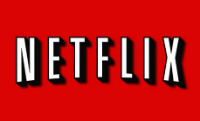Pirate Site Blocking Boosts Interest in VPNs, Research Shows
mercredi 20 avril 2016 à 11:47 Following a series of High Court orders, six of the UK’s major ISPs are required to block access to dozens of the world’s most popular ‘pirate’ sites.
Following a series of High Court orders, six of the UK’s major ISPs are required to block access to dozens of the world’s most popular ‘pirate’ sites.
The measures were supposed to make it harder for UK Internet subscribers to access these sites, but the effects on actual behavior are widely debated.
A new study published by Carnegie Mellon University and Wellesley College researchers aims to provide some empirical evidence on this issue.
The researchers investigated the effects of a 2014 court order that required ISPs to block an additional 53 pirate sites. Using data from a panel of 58,809 UK Internet users, they then reviewed the changes in browsing patterns among these users.
Not surprisingly, visits to the blocked sites dropped dramatically, 90% in this case. However, the researchers didn’t observe an increase in visitors to pirate sites that remained unblocked.
“We found that these blocks caused a 90% drop in visits to the blocked sites while causing no increase in usage of unblocked sites. This led to a 22% decrease in total piracy for all users affected by the blocks”
This suggests that the pirate site blockades are indeed effective to a certain degree. However, as anecdotal evidence has shown in the past, they also boost the interest in circumvention tools such as VPNs.
“Some users of the blocked sites, however, did seem to employ technical workarounds to continue usage of the blocked sites,” the researchers reveal.
The data show a marginally significant effect which indicates that “for every 10 additional visits to blocked sites before the blocks, a consumer increased their visits to VPN sites after the blocks by an additional 30%.”
In other words, while some pirates may drop out, there are also those who actively try to circumvent the blockades.
Overall, however, the researchers conclude that there’s a decrease in piracy and an increase in use of legal services. This effect is most pronounced for ad supported streaming services, and to a lesser degree (and only a 75% confidence level) for paid services.
“We also found that these blocks caused a 6% increase in visits to paid legal streaming sites like Netflix and a 10% increase in videos viewed on legal ad supported streaming sites like BBC and Channel 5.”
One should take into account that the results are based on data from 2014, after several large pirate sites were blocked already. This means that other pirates may have already dropped out after earlier blocks, while the more persistent pirates remain.
This may also explain why there was a stronger effect on visits to legal services in a previous study. That said, the additional blocking measures still change people’s behavior.
“The evidence suggests that blocking large numbers of sites can still ‘move the dial’ in terms of consumer behavior, but that there may be diminishing returns as remaining pirates may be more dispersed or else have lower willingness to pay for legal content.
“Nonetheless, such blocks can serve to mitigate the possibility of a long-term return to the prior status quo,” the researchers add.
The research was carried out as part of Carnegie Mellon University’s Initiative for Digital Entertainment Analytics, which received a generous donation from the MPAA. However, the researchers suggest that their work is carried out independently.
That said, the results are likely to be used by the entertainment industries to justify additional blocks around the world.
Source: TF, for the latest info on copyright, file-sharing, torrent sites and ANONYMOUS VPN services.

 Earlier this year Netflix announced that it would increase its efforts to
Earlier this year Netflix announced that it would increase its efforts to 
